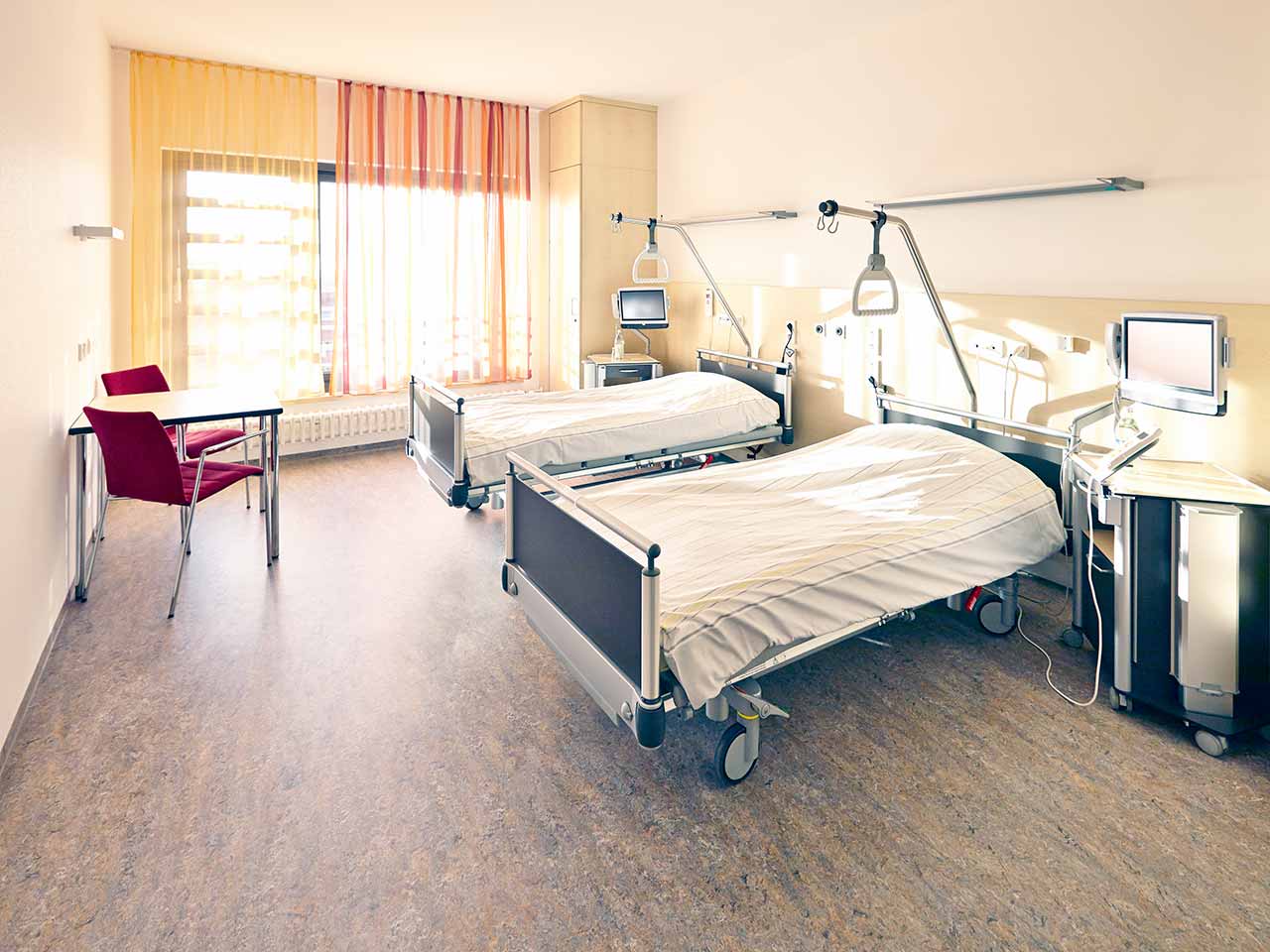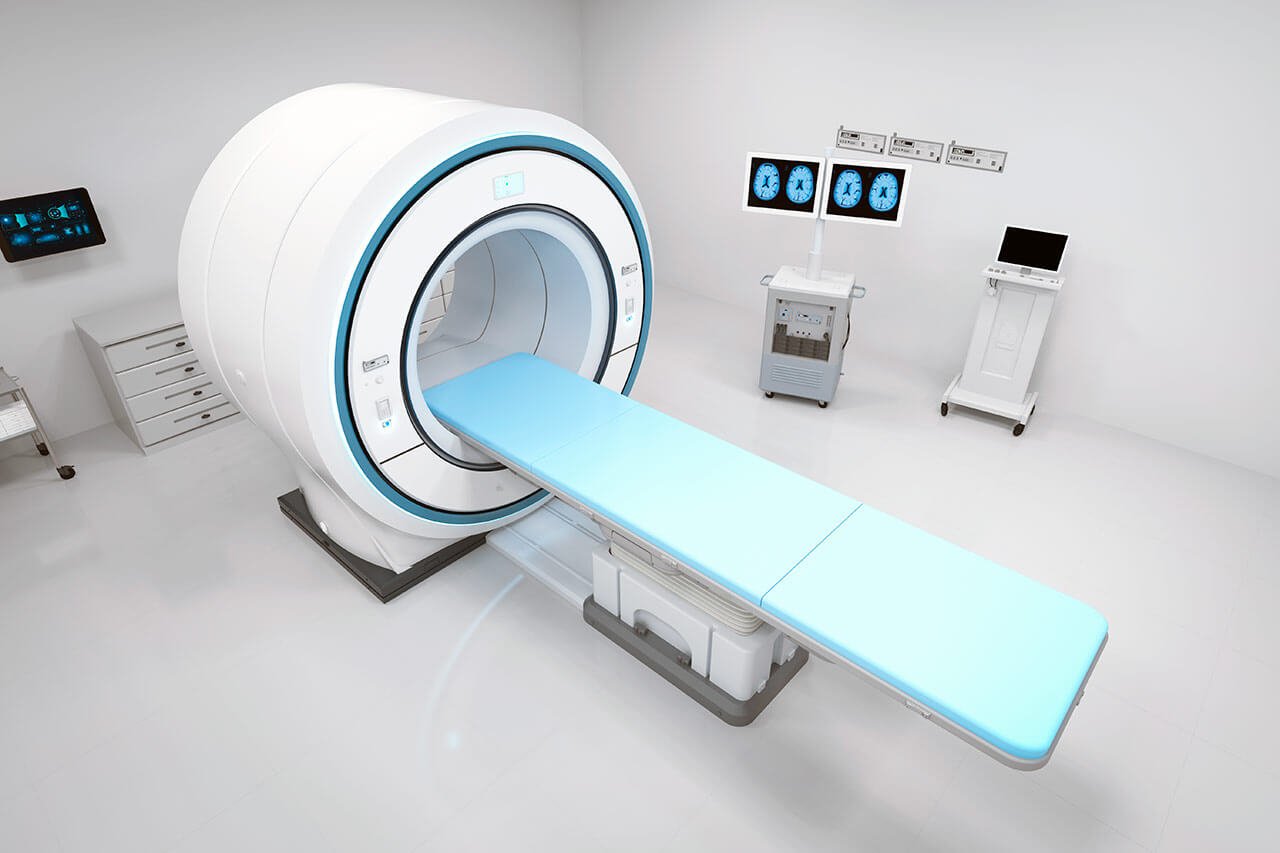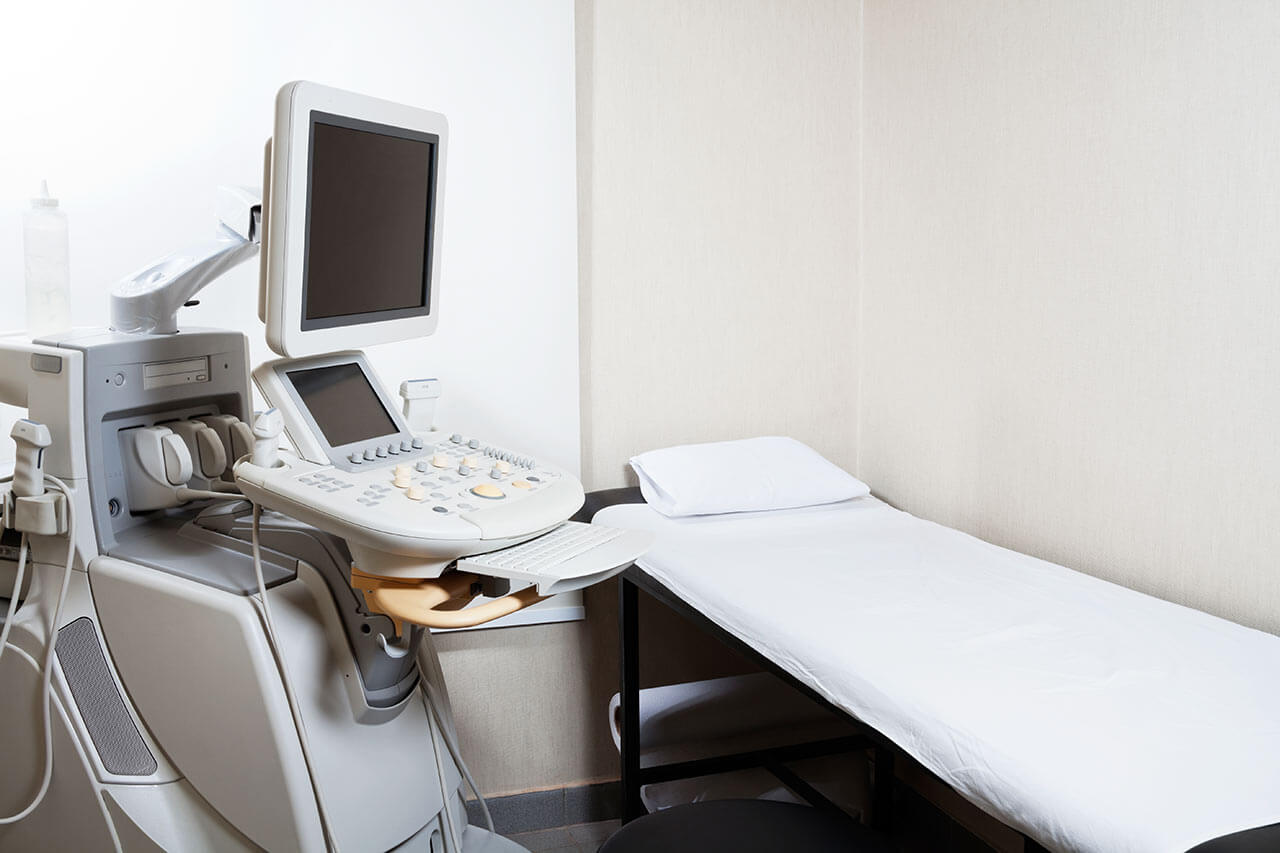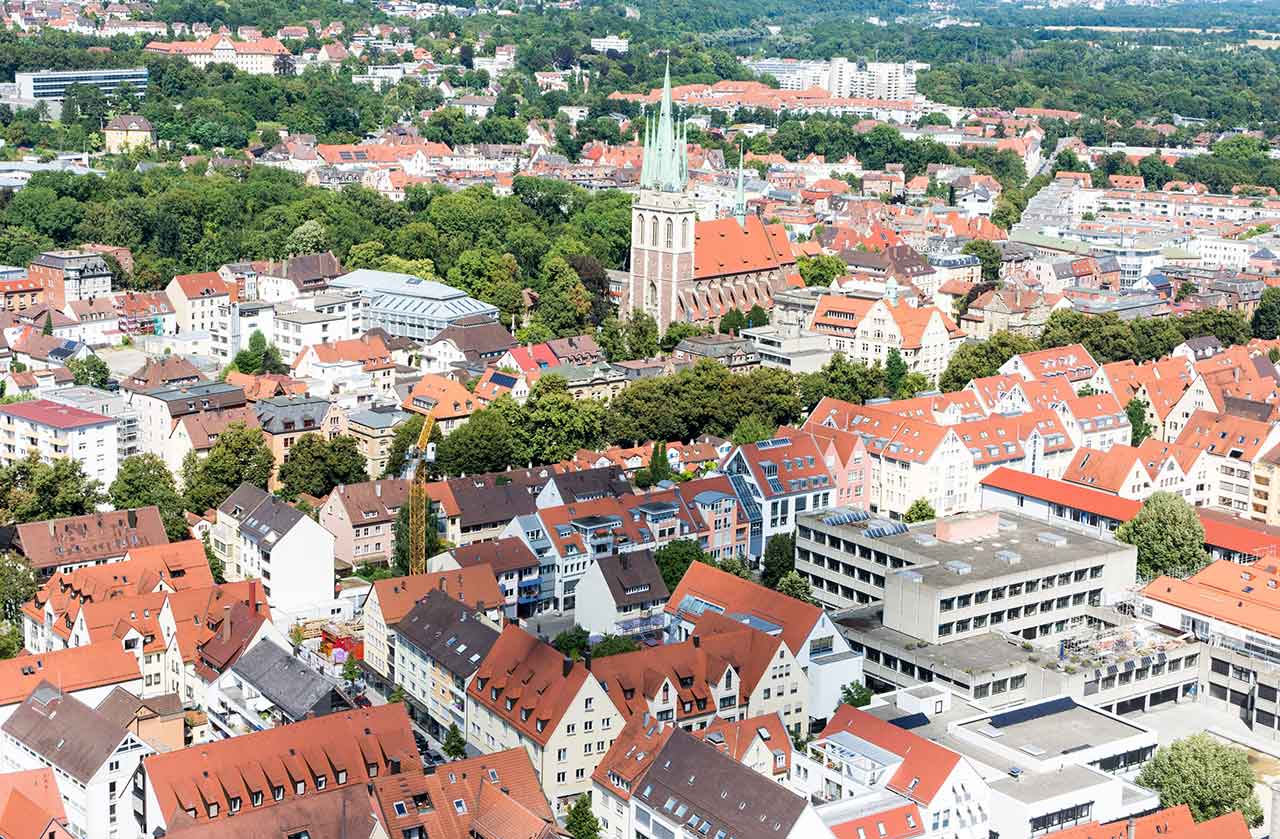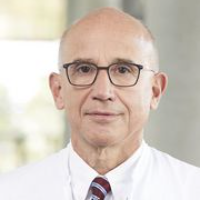
About the Department of Hematology, Oncology, Rheumatology, Infectology and Bone Marrow Transplantation at University Hospital Ulm
The Department of Hematology, Oncology, Rheumatology, Infectology and Bone Marrow Transplantation at the University Hospital Ulm offers modern diagnostics and treatment in all areas of its specialization. The medical facility treats patients with solid malignant tumors of various locations, malignant and benign diseases of the hematopoietic system, rheumatic diseases, and infections. The department enjoys a reputation as one of the leading health facilities for bone marrow transplants in Germany, which is confirmed by accreditation in accordance with JACIE standards. More than 80 allogeneic and more than 100 autologous bone marrow transplants are performed in the medical facility annually. In addition, the department successfully carries out innovative CAR T-cell therapy, which is available only in the most advanced medical centers worldwide. The department is part of the Comprehensive Cancer Center Ulm (CCCU), where a multidisciplinary team of highly professional doctors takes care of the health of patients. The high quality of medical services is confirmed by the certification of the German Cancer Society (DKG). The health of patients is in the safe hands of experienced specialists who strive to provide each patient with the most effective treatment using advanced therapeutic methods. The medical facility has 112 beds and many specialized outpatient clinics.
The Head Physician of the department is Prof. Dr. med. Hartmut Döhner. The specialist is distinguished by his high professionalism in the areas of his specialization and is actively engaged in work on research projects. Prof. Döhner's productive clinical and scientific activities have been recognized with multiple awards and honors. He is a member of German and American professional societies, including the German Society of Hematology and Medical Oncology (DGHO), the American Society of Clinical Oncology (ASCO), the German Cancer Society (DKG), and the American Association for Cancer Research (AACR).
The department has long experience in the treatment of solid malignant tumors. The most common tumors encountered by the department's doctors are lung cancer, kidney cancer, sarcomas, and brain tumors (gliomas, meningiomas, medulloblastomas, and lymphomas). Patients with suspected cancers are diagnosed in collaboration with the Departments of Nuclear Medicine and Radiology. The specialists in gastroenterology, pulmonology, gynecology, urology, neurology, surgery, and others are also engaged in the diagnostic process. Each clinical case is discussed during regular interdisciplinary tumor boards, after which an individual treatment regimen is developed, taking into account diagnostic data, the stage of the disease, the patient's general health condition, their age, and other important factors. The department's doctors use all modern treatment methods available in this field to treat cancer, including various chemotherapy regimens, targeted therapy, hormone therapy, radiation therapy, and immunotherapy. Surgical treatment is performed in cooperation with specialized surgeons using minimally invasive techniques, if possible.
Malignant diseases of the hematopoietic system are treated jointly by the department's oncologists and hematologists. The specialists regularly treat patients with acute myelogenous leukemia, chronic lymphocytic leukemia, myelodysplastic syndrome, myeloproliferative neoplasms, multiple myelomas, and malignant lymphomas. The primary treatment method for leukemia is chemotherapy. If chemotherapy fails or the patient develops a leukemia recurrence, a bone marrow transplant is the second-line treatment. Treatment for myelodysplastic syndrome may include red blood cell transfusion, low-dose chemotherapy combined with supportive therapy and immunosuppressive therapy, or high-dose chemotherapy followed by a bone marrow transplant. The treatment regimen for myeloproliferative neoplasms may include transfusion therapy, chemotherapy, radiation therapy, and high-dose chemotherapy with a bone marrow transplant. In the fight against multiple myeloma and malignant lymphoma, the best results are achieved in a combination of chemotherapy, antibody therapy, and immunotherapy.
A unique offer for patients with blood cancer is CAR T-cell therapy, which has been performed in the department since 2019. This innovative treatment combines elements of immunotherapy, gene therapy, and cell therapy. The therapeutic effect is achieved by genetically programming the patient's own leukocytes to destroy cancer cells. The department's specialists use advanced equipment to extract leukocytes from blood and genetically modify them to express chimeric antigen receptors (CAR). After multiplication in laboratory conditions, millions of modified cells are infused into the patient. CAR T-cell therapy is a last-line treatment when all other options have been exhausted. Numerous clinical trials have proven the high effectiveness and safety of this treatment method.
It is worth noting that one of the department's priority focuses is allogeneic bone marrow transplants, which have been performed here since 1972. Currently, the department offers all types of allogeneic stem cell transplants (related donors, unrelated donors, haploidentical donors, and umbilical cord blood). The department has certification, which allows it to perform autologous and allogeneic stem cell transplants. It is also certified as a center specializing in harvesting peripheral stem cells and spinal cord tissue according to the JACIE (Joint Accreditation Committee of the ISCT and the EBMT) standards. It is noteworthy that the Bone Marrow Transplant Center at the University Hospital Ulm made a major contribution to the establishment of the European Society for Blood and Marrow Transplantation (EBMT), which began its work in 1978. Until today, the department has performed more than 2,500 allogeneic bone marrow transplants and about 2,300 autologous transplants. The department is deservedly proud of its rich experience and successful results in this medical field.
The department has also formed a highly professional team of rheumatologists responsible for the diagnostics and treatment of patients with rheumatoid arthritis, ankylosing spondylitis, systemic lupus erythematosus, scleroderma, and vasculitis. Patients with these pathologies most often receive drug therapy with biologic drugs, including in the form of infusions.
The department's main clinical focuses include:
- Oncology
- Diagnostics and treatment of lung cancer
- Surgical treatment
- Lobectomy
- Pneumonectomy
- Bilobectomy
- Segmentectomy
- Conservative treatment
- Chemotherapy
- Radiation therapy
- Targeted therapy
- Immunotherapy
- Surgical treatment
- Diagnostics and treatment of kidney cancer
- Surgical treatment
- Partial or radical nephrectomy
- Conservative treatment
- Targeted therapy
- Immunotherapy
- Chemotherapy
- Surgical treatment
- Diagnostics and treatment of bone and soft tissue sarcomas
- Surgical treatment
- Surgical resection of neoplasms
- Limb amputation
- Conservative treatment
- Chemotherapy
- Radiation therapy
- Surgical treatment
- Diagnostics and treatment of malignant brain tumors: gliomas, meningiomas, medulloblastomas, and lymphomas.
- Surgical treatment
- Tumor resection surgery
- Conservative treatment
- Chemotherapy
- Radiation therapy
- Surgical treatment
- Diagnostics and treatment of lung cancer
- Hematology
- Diagnostics and treatment of benign hematologic diseases
- Diagnostics and treatment of anemias
- Drug therapy with oral medications
- Infusion therapy
- Diagnostics and treatment of hemophilia
- Substitution infusion therapy
- Diagnostics and treatment of anemias
- Diagnostics and treatment of malignant hematologic diseases
- Diagnostics and treatment of acute myeloid leukemia
- Chemotherapy
- Bone marrow transplant
- Diagnostics and treatment of chronic lymphocytic leukemia
- Chemotherapy
- Bone marrow transplant
- Diagnostics and treatment of myelodysplastic syndrome
- Red blood cell transfusion
- Low-dose chemotherapy combined with supportive therapy and immunosuppressive therapy
- High-dose chemotherapy followed by a bone marrow transplant
- Diagnostics and treatment of myeloproliferative neoplasms
- Transfusion therapy
- Chemotherapy
- Radiation therapy
- High-dose chemotherapy with a bone marrow transplant
- Diagnostics and treatment of multiple myeloma
- Chemotherapy
- Antibody therapy
- Immunotherapy
- Diagnostics and treatment of malignant lymphomas
- Chemotherapy
- Antibody therapy
- Immunotherapy
- Diagnostics and treatment of acute myeloid leukemia
- Diagnostics and treatment of benign hematologic diseases
- Rheumatology
- Diagnostics and treatment of rheumatic diseases
- Diagnostics and treatment of rheumatoid arthritis
- Diagnostics and treatment of ankylosing spondylitis
- Diagnostics and treatment of systemic lupus erythematosus
- Diagnostics and treatment of scleroderma
- Diagnostics and treatment of vasculitis
- Diagnostics and treatment of rheumatic diseases
- Infectology
- Diagnostics and treatment of infectious diseases
- Diagnostics and treatment of echinococcosis
- Diagnostics and treatment of HIV and AIDS
- Diagnostics and treatment of coronavirus infection (COVID-19)
- Diagnostics and treatment of complicated forms of tuberculosis
- Diagnostics and treatment of tropical infections
- Diagnostics and treatment of infectious diseases
- Other medical services
Curriculum vitae
Higher Education
- 1976 - 1977 Medical studies, Faculty of Medicine, University of Regensburg, Regensburg, Germany.
- 1977 - 1979 Medical studies, Faculty of Medicine, University of Freiburg, Freiburg, Germany.
- 1979 - 1980 One-year scholarship, University of Montpellier, Montpellier, France.
- 1980 - 1983 Medical studies, Faculty of Medicine, University of Freiburg, Freiburg, Germany.
Academic Degrees
- 1985 Doctor of Medicine, Faculty of Medicine, University of Freiburg, Freiburg, Germany.
- 1994 PD (habilitation), Faculty of Medicine, University of Heidelberg, Heidelberg, Germany.
- 1999 Professor of Medicine, University of Ulm.
Board Certification
- 1993 Board certification in Internal Medicine.
- 1998 Board certification in Oncology and Hematology.
Professional Career
- 1983 - 1985 Residency (specialization: surgical pathology), Institute of Pathology, St. Vincentius Hospital Karlsruhe, Germany.
- 1985 - 1988 Training in Oncology and Hematology, Department of Hematology and Oncology, University Hospital Heidelberg, Germany.
- 1988 - 1990 Postdoctoral Associate in the Department of Internal Medicine, Section of Oncology, and in the Department of Laboratory Medicine and Pathology, Section of Medical Genetics, University of Minnesota, Minneapolis, USA.
- 1990 - 1993 Training in Oncology and Hematology, Department of Oncology and Hematology, University Hospital Heidelberg, Germany.
- 1993 - 1999 Senior Physician, Department of Oncology and Hematology, University Hospital Heidelberg, Germany.
- 2003 - 2011 Head Physician, Department of Internal Medicine, University Hospital Ulm.
- Since 1999 Head Physician, Department of Hematology, Oncology, Rheumatology, Infectology and Bone Marrow Transplantation, University Hospital Ulm.
- Since 2006 Head Physician, Comprehensive Cancer Center Ulm (CCCU).
- Since 2012 Coordinator, Research Project "Experimental models and clinical trials in leukemia", Collaborative Research Center (SFB).
Memberships in Professional Societies
- 1993 American Society of Hematology (ASH).
- 1996 German Society for Hematology and Medical Oncology (DGHO).
- 2001 European Hematology Association (EHA).
- 2002 American Society of Clinical Oncology (ASCO).
- 2006 German Cancer Society (DKG).
- 2015 American Association for Cancer Research (AACR).
Prizes, Awards, and Honors
- 1979 - 1980 Scholarship, German Academic Exchange Service.
- 1988 - 1990 Scholarship, Mildred Scheel Foundation.
- 1995 Clinical Research Award (for Leukemia Research) from the German Society for Hematology and Medical Oncology (DGHO).
- 2009 Participant in the Kenneth McCredie Lectureship, International Association for Comparative Research on Leukemia and Related Disorders (IACRLRD), Ohio, USA.
- 2010 Anita and Cuno Wieland Research Award for Translational Cancer Research, University of Heidelberg.
- 2011 Wilhelm Warner Award for Cancer Research, Hamburg.
- 2012 Elected Member, Berlin-Brandenburg Academy of Sciences and Humanities.
- 2014 Jose Carreras Award from the European Hematology Association (EHA).
- 2019 Medal from the Polish Society of Hematology and Transfusion Medicine in recognition of special merit in the field of hematology and significant contribution to the development of this medical field.
- 2019 Binet-Rai Medal awarded at the International Workshop on Chronic Lymphocytic Leukemia in recognition of outstanding scientific achievements in the research of this disease.
- 2021 Johann Georg Zimmermann Medal for Cancer Research.
Review Activities in Medical Journals
- Annals of Hematology.
- Blood.
- European Journal of Immunology.
- Genes, Chromosomes and Cancer.
- Haematologica.
- International Journal of Cancer.
- Journal of Clinical Oncology.
- Lancet.
- Leukemia.
- New England Journal of Medicine.
Photo of the doctor: (c) Universitätsklinikum Ulm
